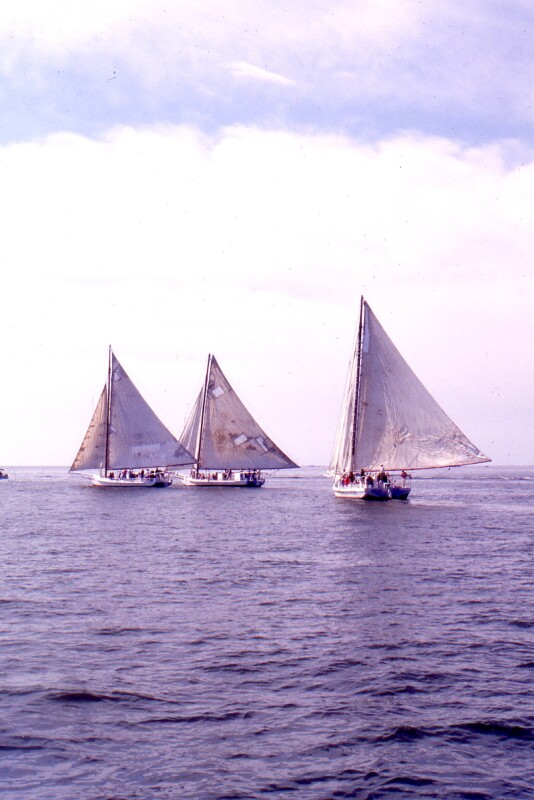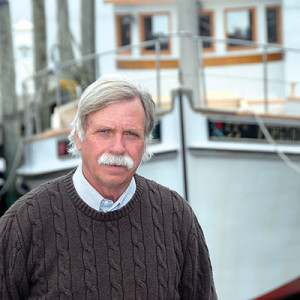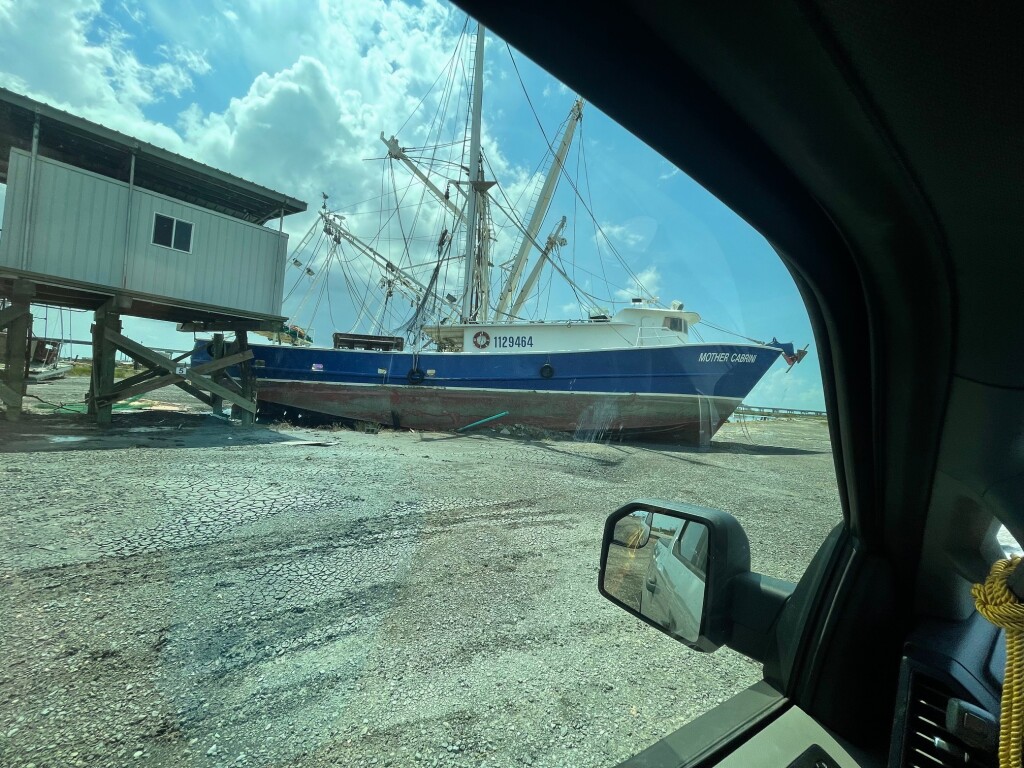Terrebonne Parish, La., is home to a large portion of the state’s commercial shrimp boat fleet. On Aug. 29, winds from Hurricane Ida left many in the fleet high and dry on the bayou marshes.
Robbie Portier of Portier Fabrication of Chauvin, La., in Terrebonne Parish was home with his family when Ida hit.
“I was cooking a pot of jambalaya when the worst (of the storm) hit,” he says. “I really shouldn’t tell you that, but we had done everything we could to prepare at home and at the boatyard. We were just home waiting.”
The Portier family had cleaned out a large closet under the stairway at their home and padded the walls with mattresses. The family, which includes four children between the ages of 10 and 17, crawled into the closet and rode out the storm.
“When it was over, 90 percent of the roof on my home was compromised, and water was running down the sheetrock walls in most of the rooms,” says Portier. “The main thing, though, was that we were all safe.”
The boatyard fared even better, as there was no major damage, and the two boats at the yard under repair and construction were unscathed. A shrimp boat was at the yard for installation of new rigging and a nearly completed new-construction, 100-foot charter boat were both safe.
The area’s shrimping fleet was not so fortunate, says Portier. “I know where there are at least 10 shrimp boats in the marshes, and I think I’m going to reach out to the insurance companies to let them know I’m available to help,” he says.
At his yard, Portier does not use a traditional railway or boat lift to launch boats. He rolls vessels into the water using rubberized cylinder-shaped airbags. The deflated airbags are maneuvered under the boats and then blown up.
“Many of the boats are near the edge of the water, but are also in places where it is going to be hard to get heavy equipment to,” says Portier. “I think we can get these boats safely back in the water by using my airbags.”
This was no ordinary hurricane, says Portier. “My buddy was hanging onto his boat looking at his wind gauge, when the gauge showed wind speed at 170 mph, and then the wind gauge blew away,” says Portier. “It was one hell of a storm.”
Portier reported in mid-September he still had no electricity at his home or at the boatshop, and he says he has been told it could be October before current would be turned back on.
“When something like this comes through, the thing you worry the most about is if everyone is safe. The rest can be fixed,” he says.
Maryland celebrates wood and wind power with races
Moving up to Deal Island, Md., the 62nd annual Labor Day Deal Island Skipjack Races were held on Monday, Sept. 6. Capt. Wade Murphy of Tilghman Island, Md., in the sloop/skipjack rigged Rebecca T. Ruark, won in the Working Skipjack Class. The vessel is the oldest sailing dredge boat on the bay and in 2003 was named to the National Historic Landmark list by the U.S. Department of the Interior. The skipjack was built at Taylor’s Island, Md., in 1896.

Captain Wade, at 80 years old, is the oldest working skipjack captain in the race. He was assisted by his son Captain Wade Murphy Jr. Over the years, Rebecca T. Ruark has been a traditional winner at the Deal Island races.
Capt. Jerry Ormsby of Onancock, Va., was at the helm of the skipjack Messenger, which took first place overall in the race. The Messenger was formerly named Charlotte E. Foster, a three-sail bateau built for pleasure in 1975 by Fred Davis at Richardson Boatyard in Lloyds, Md. She was rebuilt in 2016-17 and reconfigured into a skipjack.
On another skipjack note, the 45' x 15.8' City of Crisfield is at Scott’s Cove Marina in Chance, Md., undergoing a complete restoration. The skipjack was built in 1949 by C.H. Rice and his son, Ed, at Reedville, Va. She was owned for many years by the legendary Captain Art Daniels Jr., who purchased the vessel in 1951 and owned it until his death in 2017. After his death, his family gifted the vessel to the Skipjack Heritage Inc. in Chance, Md.
Formed in 2007 as a nonprofit organization with a goal of preserving the history and heritage of the bay’s skipjack, the group’s main project is restoration of the City of Crisfield.
Maryland’s skipjack fleet is the last working sailing fleet in the United States. For conservation efforts, Maryland’s General Assembly has passed laws over the years restricting the use of motor-powered vessels in the state’s oyster dredge fishery. This has encouraged the sailing skipjacks to sail on!







